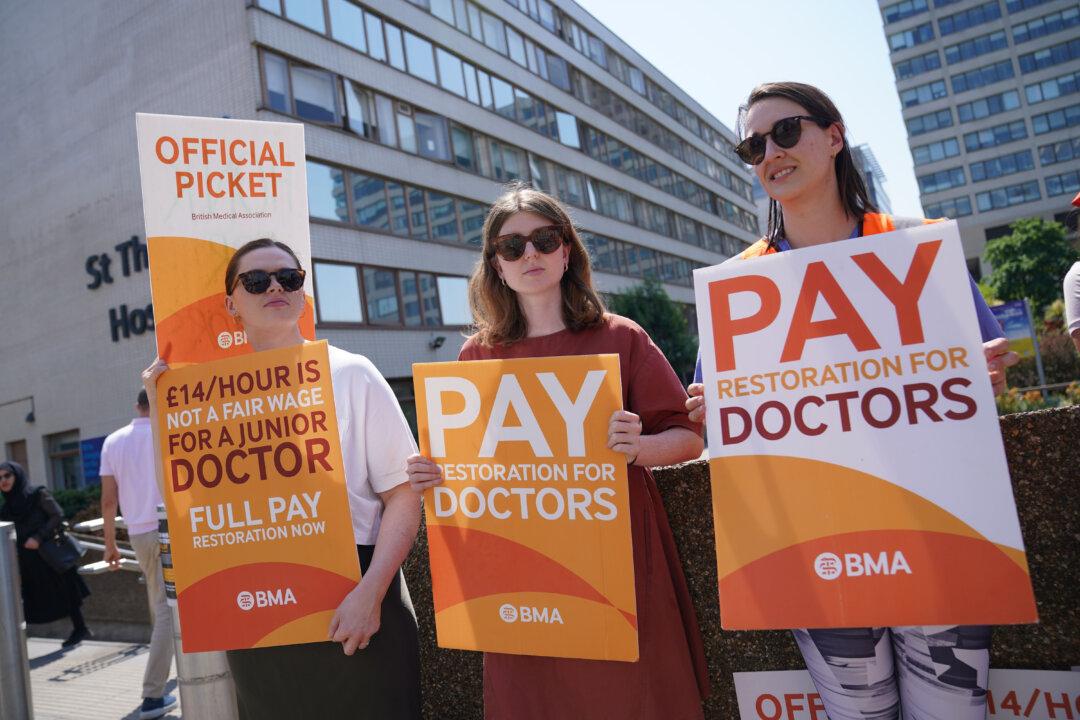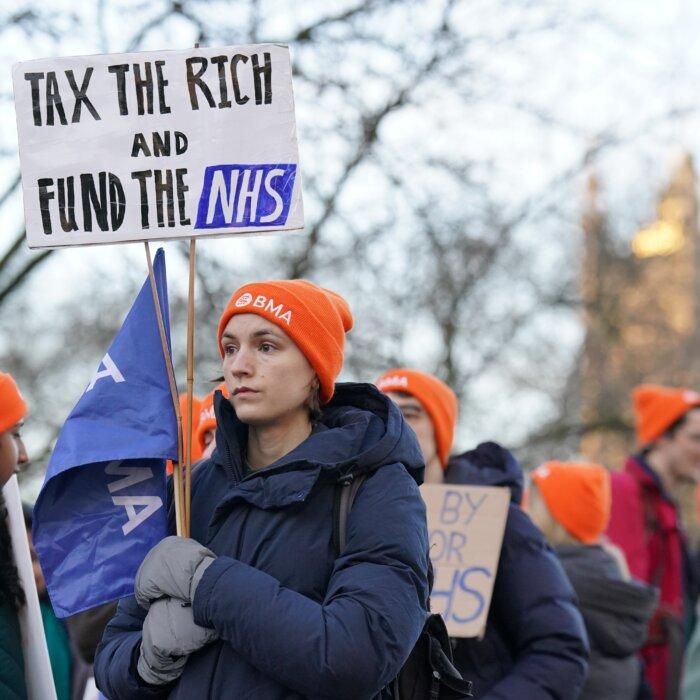The healthcare service will be hit hard by a new round of strike action amid heatwave health alerts, the NHS national medical director has warned.
Junior doctors in England have announced new strike dates in the run-up to the general election. This involves a full walk-out of junior doctors beginning at 7 a.m. June 27 and ending at 7 a.m. July 2.
The new round of industrial action will hit the NHS “very hard,” warned Sir Stephen Powis, the NHS medical director.
The walkout, announced by the British Medical Association (BMA), comes at a time when temperatures across the country are set to rise above 25 degrees Celsius.
Yellow alerts are issued when the hot weather may have “significant impacts” on the vulnerable population, such as the elderly with health conditions who are likely to struggle to cope with the heat. During this time, action may be required within the health and social care sectors.
The first day of the strike coincides with the last day of the expected heatwave.
“While the warmer weather can lead to additional pressure on services at a time when demand for services is already high,” said Sir Stephen.
He advised people to continue using the NHS 999 emergency service and the 111 service for other health concerns.
“As ever, we are working to ensure urgent and emergency care is prioritised for patients, but there is no doubt that it becomes harder each time to bring routine services back on track following strikes, and the cumulative effect for patients, staff and the NHS as a whole is enormous,” said Sir Stephen.
During the five-day strike, GP services and pharmacies will be available for patients to access in the normal way. Patients whose planned appointments haven’t been postponed have been urged to attend as normal.
Unresolved Issues
The BMA said that some doctors will be exempt from the strike action to “prevent dangerous delays to cancer care.”This applies to surgical registrars working on high-risk upper GI, head and neck, and lung cancers at Lewisham and Greenwich, Guys and St Thomas’ and Kings College Hospital. The derogation is meant to help patients whose care was delayed due to the cyber-attack on these hospitals in the beginning of June.
The union has been calling for a “pay restoration” for junior doctors, saying their salary has decreased by over a quarter in real terms compared to 2008.
In May, the government and the BMA entered mediated talks to try to resolve the dispute.
But they failed to reach an agreement before parliamentary business was concluded in the run-up to the election.
When the BMA announced the strike, it said that if Mr. Sunak had made a “concrete commitment to restore doctors’ pay” during his campaign “that is acceptable to the BMA’s junior doctors committee, then no strikes need go ahead.”
The upcoming strikes come after the busiest month of May on record for A&Es across the country and the busiest ever in April for diagnostic activity.






